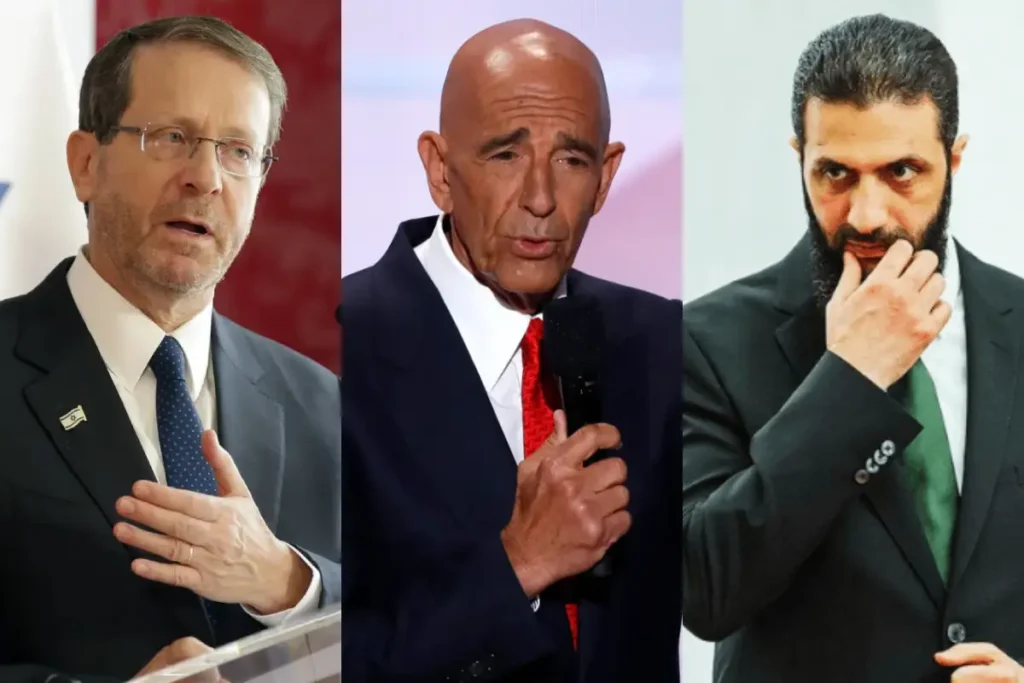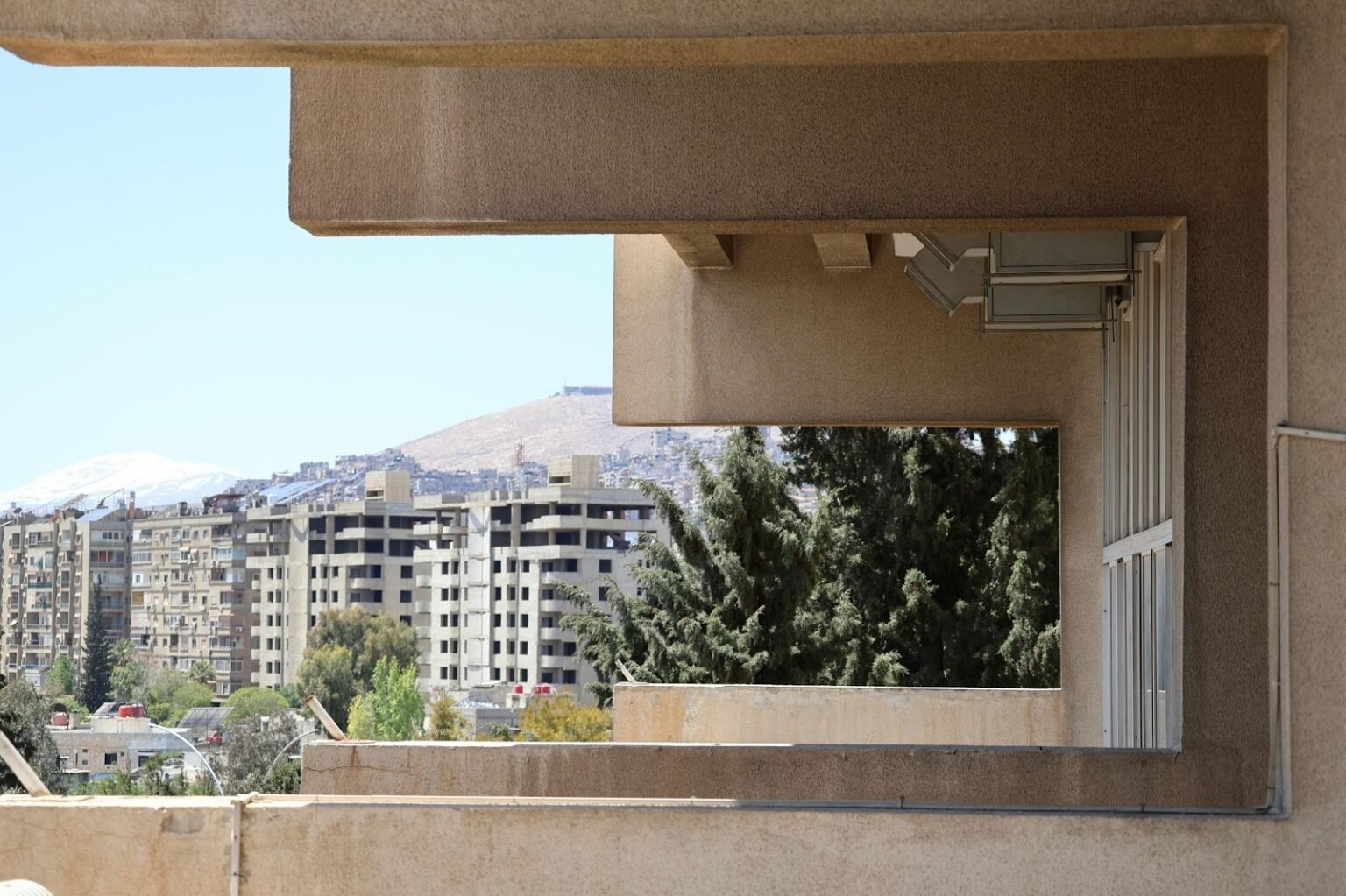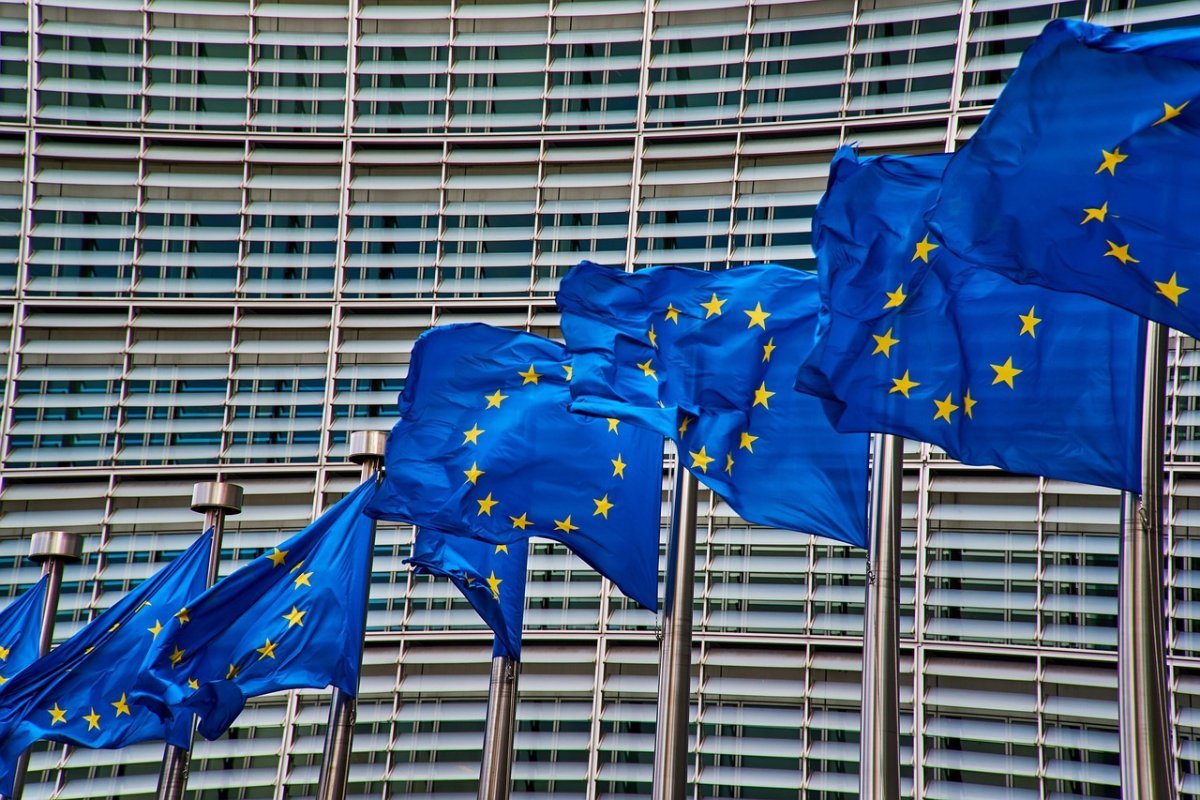The most notable event this week was the visit of U.S. envoy Tom Barrack to the Middle East and his meetings with Syrian President Ahmad Al-Sharaa and SDF commander Mazloum Abdi. The meeting’s outcomes suggest some tensions remain in the agreement signed between the new Syrian state and the SDF in March.
Syrian-Israeli Meeting in Azerbaijan:
Barrack reportedly reminded Syrian officials that the lifting of sanctions was conditional on several requirements, including Syria’s engagement in the Abraham Accords. He reiterated the U.S. support for a unified Syria.
However, official positions from both Damascus and Tel Aviv remain unclear regarding normalization. At times, leaks suggest ongoing discussions focused on new security arrangements in southern Syria rather than permanent peace. At other times, updates paint an optimistic picture.
The latest development came from media sources reporting a meeting in Azerbaijan between a Syrian and an Israeli official, coinciding with Al-Sharaa’s visit to the country.
A “Golden” Opportunity for Peace:
This week also saw a remarkable development in Syrian-Israeli relations. Syrian businessman and activist Shadi Mardini gave a speech at the Israeli Knesset in Tel Aviv, calling for peace between Syria and Israel. He stated that he met President Al-Sharaa, who told him that “the opportunity for cooperation with Israel is rare and may not last long.”
In an interview with Israeli television, Mardini said Syria had a golden opportunity for peace with Israel and added: “I believe President Al-Sharaa when he says the time for wars is over.”
On the other hand, Israeli President Isaac Herzog gave a speech highlighting the “historic” opportunity for peace and welcomed expanding the Abraham Accords to include new partners in the region.
His remarks come amid a covert military alliance, with ongoing operations targeting groups affiliated with Iran and Hamas in Syrian territory.
All eyes are now on Syria’s new administration: Can it truly neutralize its external conflicts with its southern neighbor? More importantly, can it overcome the substantial and complex obstacles in the path to peace?



